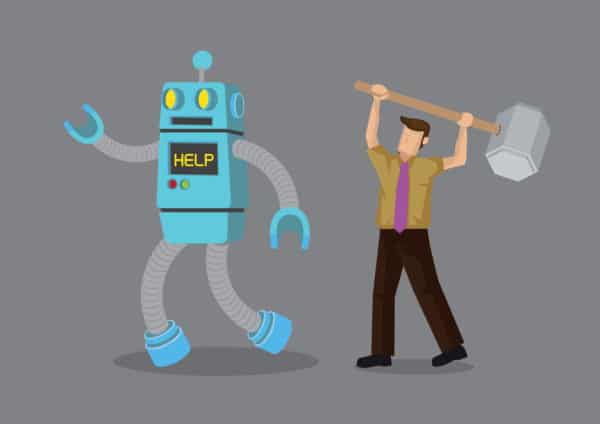Automation has the potential to improve productivity while lowering overhead costs. There’s no question that automation will touch virtually every industry, but will it wipe out the human workforce entirely?
In the future, robots could replace a human workforce. But for now, experts say that only about a quarter of jobs will be on the chopping block.
Here’s how automation is shaping the job market and wage growth.

25% of Jobs are Threatened by Automated
According to researchers at Brookings Institution, only 25% of U.S. occupations are at a “high risk” of losing jobs due to advancements in automation. These occupations including food service, production and transportation.
Even so, researchers say that most occupations will merely see their labor tasks enhanced – rather than replaced – by automation. Rarely does automation replace an entire job. Instead, robots will handle certain tasks.
Potential for Fewer Hours, Lower Pay
Many workers are already feeling the effects of automation. Last year, nearly 8,000 Marriott International workers went on strike for two months, demanding protection against the growing threat of automation in the hotel industry.
In recent years, the service industry has been outsourcing more tasks to machines. As a result, workers are watching their schedules shrink and their wages decline.
The restaurant industry is experimenting with robots that handle bartending and salad-making duties. On cruise ships, robots are delivering food to guest rooms. Hotels are now offering automated check-ins through apps, and guests can order just about anything through Alexa-enabled speakers – and without having to talk to staff.
Growth in Lower-Risk Position
While automation is threatening some jobs, there will likely be growth in other areas that are at a much lower risk of being replaced by machines.
There will likely be a greater demand for managers and executives in virtually every field, from IT to science and engineering. Robots can take over many tasks, but tasks that require a certain expertise are best handled by a human worker.
This same rule applies to certain categories of jobs, such as creative fields. It would be difficult for robots to replace the unique creative minds of artists, writers, entertainers and painters. Creative arts are distinctly human. Yes, there has been some advancement in the emotional and creative aspects of artificial intelligence, humans still hold a greater advantage in this category.
Other jobs that are less threatened by automation include: CEOs, psychiatrists and legislators. For some positions, robots simply cannot match the human mind.
The Human Factor
While automation can improve productivity and lower overhead, it is important to consider that many industries that will lose “the human factor” that many customers find appealing. It may come to a point where companies find that human employees offer better customer satisfaction and growth.
Human workers may eventually be viewed as a value proposition.
Still, it will be quite some time before robots will be able to overtake positions and disrupt industries. Until then, workers in high risk jobs may consider seeking training in a new career to weather the impending storm.
 Gearfuse Technology, Science, Culture & More
Gearfuse Technology, Science, Culture & More


